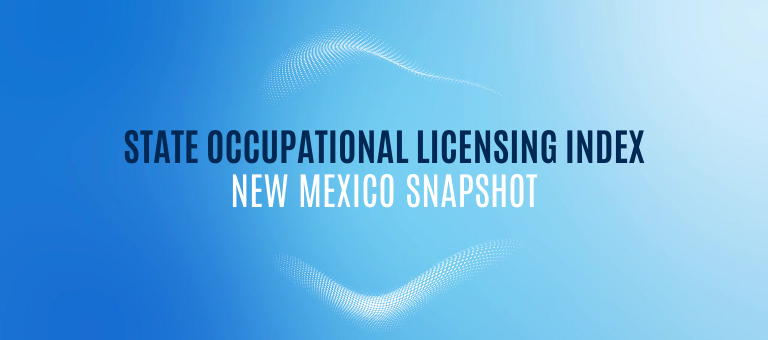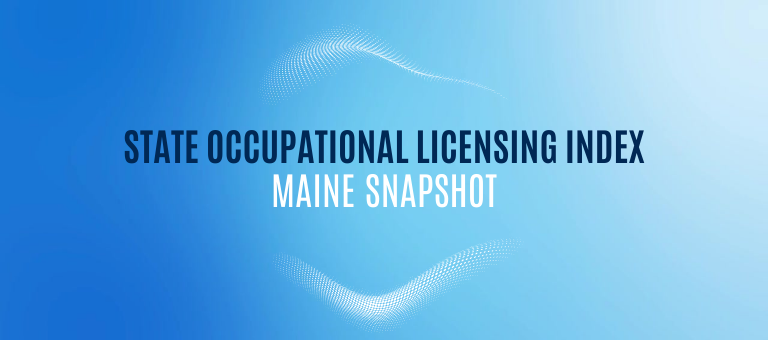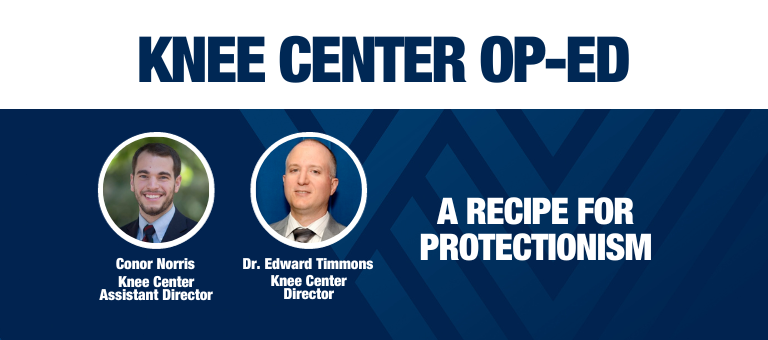
A Snapshot of Occupational Licensing in New Mexico
November 7, 2023
A Snapshot of Occupational Licensing in Maine
November 9, 2023A Recipe for Protectionism
By Conor Norris and Edward Timmons
After a failed attempt to relicense dietitians and nutritionists last year, the legislature is again considering a bill to relicense the profession. Unfortunately, this bill would just make nutrition advice more expensive and difficult to find.
The Michigan House passed HB 4608, which would reinstate licensing requirements for dietitians and nutritionists, and the bill is now off to the Senate.
In 2014, the legislature removed licensing requirements for the profession. The world didn’t end, and Michiganders didn’t suddenly become unhealthy.
This should come as no surprise. In 2012, the Office of Regulatory Reinvention conducted a study of Michigan’s dietician nutritionist licensing law. They found no evidence that these laws protected clients or resulted in any improvement in public health. The report confirmed what economists already knew, licensing does not result in improvements in quality.
Licensing may not be a great way to protect consumers. But it is a great way to protect yourself from competition. Complaints to dietician licensing boards are typically made against smaller competitors, overwhelmingly female and minority. They are also enforced by using undercover sting operations to find people giving any sort of nutritional advice.
But it’s not just enforcement that restricts competition. The entry requirements themselves, like education, hands on training, and exams, create barriers to entry. In general licensing laws reduce the number of licensed professionals by one quarter. Michigan currently has just 4,000 registered dietitian nutritionists, so they should not be throwing up roadblocks for aspiring professionals.
Consumers may not receive better nutrition advice from licensed nutritionists, but they do have to pay higher prices. That’s because when we limit the number of professionals in a field, the prices that they can charge increase. Licensed professionals do receive higher wages, but not for offering better services. They do so by blocking out people from the profession entirely.
While licensing in general can be costly, HB 4608 would be one of the most restrictive nutritionist laws in the nation. Currently, around half of states do not license the profession. This bill would put Michigan at a disadvantage compared to its neighbors. For example, Wisconsin and Indiana both regulate nutritionists through title protection. Anyone can offer the nutrition advice, but only those who meet the requirements can refer to themselves as Registered Nutritionists.
“For instance, a personal trainer would not need a license to offer nutritional advice to a client looking to lose weight.”
Like last year’s attempt to reinstate licensing, this bill would subject someone offering health advice in some instances but not the same advice in others. For instance, a personal trainer would not need a license to offer nutritional advice to a client looking to lose weight. However, if that same client was diagnosed with obesity at their annual checkup, the personal trainer would then require a license to offer the same advice.
In the last ten years, Michigan has shown commendable effort in cutting through bureaucratic red tape, helping both aspiring professionals and consumers. But HB 4608 represents a step in the wrong direction.
Protecting consumers from outright harmful dieticians and nutritionists is a worthwhile goal. Considering the rise of obesity and the health problems that it causes, high quality nutrition advice is important. Unfortunately, this bill will not end up helping consumers. Instead, it will only help shield active professionals from greater competition and will only hurt consumers. Giving consumers less access to dietary advice is a recipe for disaster.
Article Posted in the Detroit News
Conor Norris is assistant director and Edward Timmons is director of the Knee Regulatory Research Center at West Virginia University. Timmons is also a senior research fellow with the Archbridge Institute.


